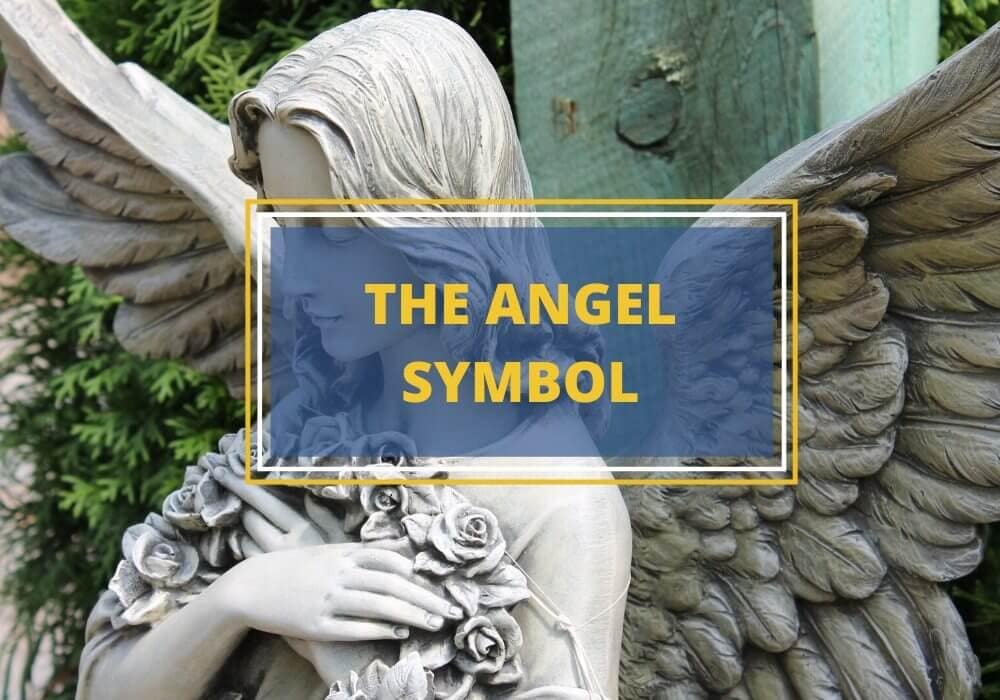
Table of Contents
Angels are more than just religious figures; they symbolize hope, guidance, and protection across many cultures. Often shown with impressive wings, these heavenly beings have a deep history linked with human spirituality and stories.
Let’s explore the intriguing symbolism of angels, looking at their history and what they mean in different traditions.
History of the Angel as a Symbol

Angels have a long history as symbols in many cultures and religions, going back thousands of years. Ancient civilizations first saw them as divine messengers or links between humans and the supernatural.
Early Mesopotamian myths had beings like angels serving the gods. In ancient Egypt, angel-like figures were thought to guide and protect people in life and after death.
Today’s idea of angels mainly comes from Judaism, Christianity, and Islam. These religions see angels as kind heavenly beings made by a divine power to deliver messages, guide, and protect humans.
In Judaism, angels (malakhim) play big roles in the Hebrew Scriptures, like in the stories of Abraham and Moses, acting as God’s messengers and protectors.
Christianity further developed these ideas, making angels a big part of its beliefs and rituals. Famous angels like Gabriel and Michael appear in important events like the Annunciation and the Apocalypse. Medieval Christian art and literature made the image of winged, haloed angels popular.
In Islam, angels are revered spiritual beings who worship God and have different roles. Gabriel (Jibril), for example, gave the Quran to Muhammad.
Outside these religions, angels have become part of popular culture and symbolism, often seen as guardians and symbols of purity and divine presence. New Age spirituality sometimes views angels as spiritual guides or protectors, a concept that’s similar but different from traditional religious views.
Through the years, the meaning of angels has changed but always kept the main ideas of guidance, protection, and divine connection. Nowadays, they’re a powerful symbol in both religious and non-religious settings, bridging the earthly and the divine.
Symbolism of Angels in Different Religions
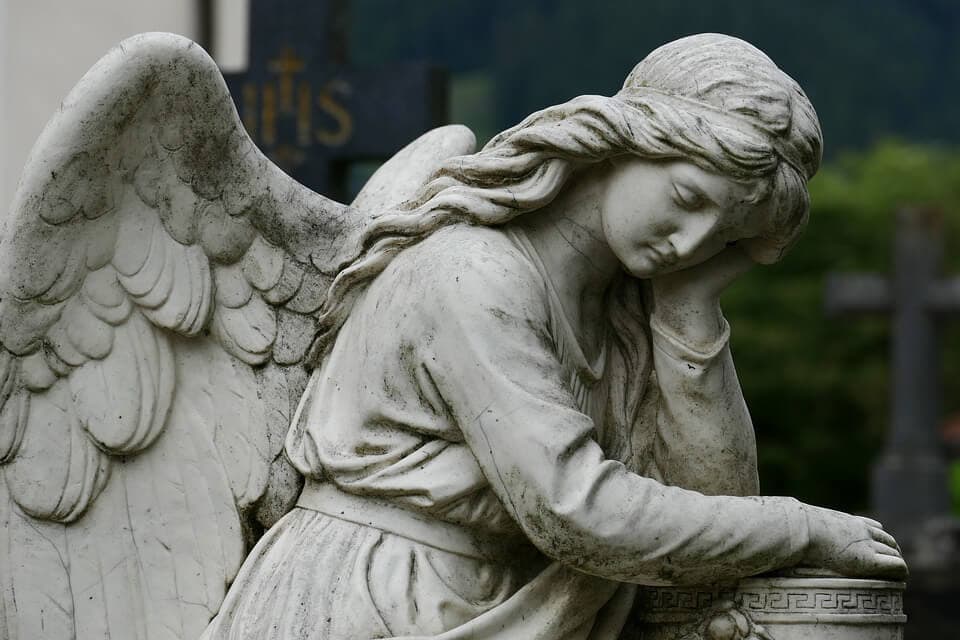
There’s a lot of speculation on the symbolism of angels from scholars, philosophers, and religious leaders. Many religions, including Christianity and Islam, also make mention of them. The Hebrew term for angel malakh and the Greek word aggelos (from which the word angel derives) both mean “messenger”.
1. Angels in Judaism
The concept of angels can be traced back to Judaism. It’s here that we get some of our first mentions of angels, as beings that follow and carry out God’s orders. They also are believed to pray for those they’re assigned to watch over.
2. Angels in Islam
In Islam, angels, called malaikah, are said to be made of light and believed to have been created before humans. Their purpose is to carry out the orders of Allah. Also, it’s believed that every person is given two guardian angels to walk with them throughout their life. One angel walks in front while the other walks behind, protecting the person.
There are also said to be two angels (known as Kiraman Katibin) sitting on each shoulder of every person, recording every thought, feeling and action the person has.
3. Angels in Zoroastrianism
In Zoroastrianism, the belief is that each person is accompanied by a winged guardian angel, called “Fravashis,” and Zoroastrians observe prayers dedicated to that angel. This is where the word farvahar comes from. It’s believed that this is where the concept of an angel as a winged being comes from.
4. Angels in Christianity
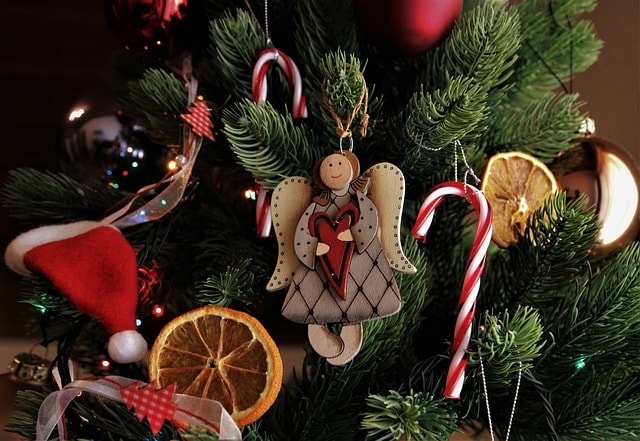
The Bible describes different kinds of angels like archangels, seraphim, cherubim, and messenger angels. Archangels are the most powerful and authoritative. Seraphs serve near God’s throne and cherubs have a special status.
Christians see angels as messengers between God and people. The Bible is full of stories where angels deliver messages to God’s followers, including Abraham, Moses, Jacob, Peter, Paul, and Daniel. Gabriel, an archangel, is famous for his role before Christ’s birth.
Angels also protected and executed God’s will, especially when threats from ancient Egypt and Assyria endangered God’s people. Stories in the Bible show angels helping Lot and his daughters escape from Sodom and Gomorrah and an angel freeing Apostle Peter from prison.
Many Christians believe in angels. A 2008 Baylor University and Gallup survey found that 55 percent of Americans think guardian angels have protected them, showing how deeply people believe in these heavenly beings.
5. Angels in Buddhism
Japanese Buddhism also reference similar beings, known as Kushoujin, that sit on the shoulders and record a person’s good and bad deeds. This may be where the popular image of a good and bad angel sitting on our shoulders and trying to influence our actions comes from.
6. Angels in Hinduism
In Hinduism, there are references to mythical beings that can be considered angels. These angels are different to those of Islam, Judaism and Christianity. These are more spiritual in nature and appear to humans in material form, looking like human beings.
What do Angels Symbolize?
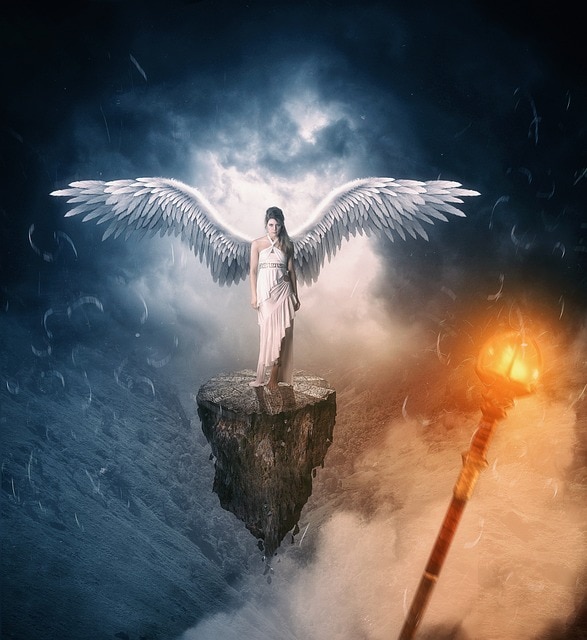
Angels, known both in religion and universally, mainly act as God’s messengers in Abrahamic faiths, delivering His messages to humans. Scriptures sometimes refer to them as “Holy Ones” and “Morning Stars,” since they live in the heavens.
They symbolize morality and righteousness. For example, Satan was an angel who disobeyed God and turned into the devil, showing that angels who follow God are good, while those who don’t are bad.
Nowadays, people see angels as guardians. They believe angels protect them from physical and spiritual harm, help heal, keep evil away, and give strength against temptations. Many think guardian angels guide them on their life paths and can be called upon with prayers, meditation, charms, and spells.
Angels also symbolize luck, bringing new people, opportunities, good fortune, and nice dreams. People believe they communicate through dreams and imagination.
Representing purity and innocence, angels are seen as free from evil and sin. They also stand for chastity, virtue, and fidelity, showing high moral and spiritual standards.
Angel Symbols in Jewelry and Fashion
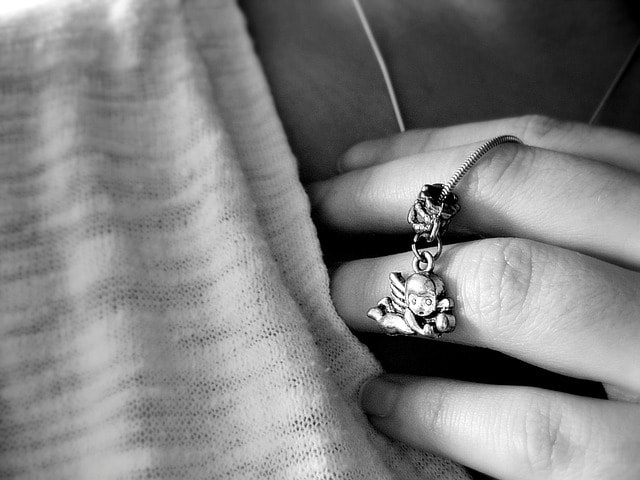
Angels significantly influence jewelry and fashion, representing protection, guidance, and spirituality. In jewelry, designs like pendants, charms, and brooches often showcase angel motifs. These pieces, featuring detailed angels or angel wings, symbolize beliefs in divine protection or remember loved ones.
Angel-themed jewelry is not only popular in religious and spiritual communities but also in mainstream fashion for its aesthetic appeal. In fashion, angel images show up in various ways, like on graphic t-shirts and accessories such as scarves and bags.
High-fashion designers also use angel elements in their collections, creating a sense of otherworldly elegance with ethereal designs and angel wings. This use of angels in jewelry and fashion combines spiritual meaning with modern style, letting people express their beliefs, remember important events, or enjoy the angelic beauty.
What Does It Mean to Dream about Angels?
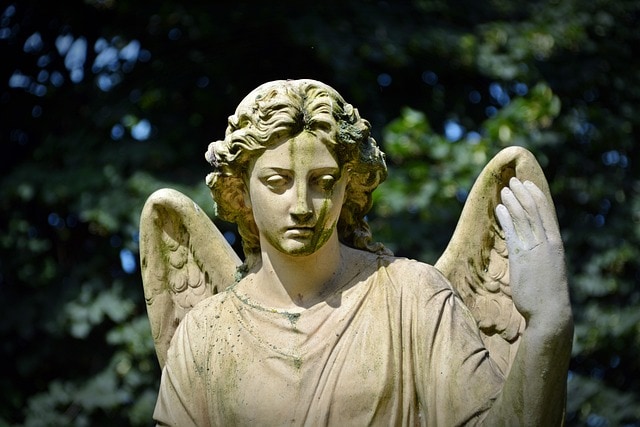
Dreaming about angels usually means something important and is often linked to guidance, protection, and reassurance. Many cultures and spiritual beliefs view angels in dreams as good signs, showing that someone is looking out for you or guiding you, especially during tough times or when you’re unsure about something.
These dreams can also show what you’re feeling inside, like purity, peace, or a desire for spiritual growth. They might represent your wish to understand more or connect with something bigger than yourself. Psychologically, such dreams could mean you want to be better in terms of morals and virtues. The meaning of angel dreams also depends on what happens and how you feel in the dream.
A calm and happy meeting with an angel can mean you feel hopeful and at peace, but a disturbing meeting might show you have unresolved issues or spiritual conflicts. Understanding these dreams really depends on your own life and feelings.
Wrapping Up
Angels are enduringly popular for many reasons. Many individuals believe that these spiritual forces are real, and guardian angels are responsible for protecting them from harm and giving them guidance in their life’s journey. Angel symbolism is highly popular even today, with the meaning transcending religion to symbolize protection and care.








